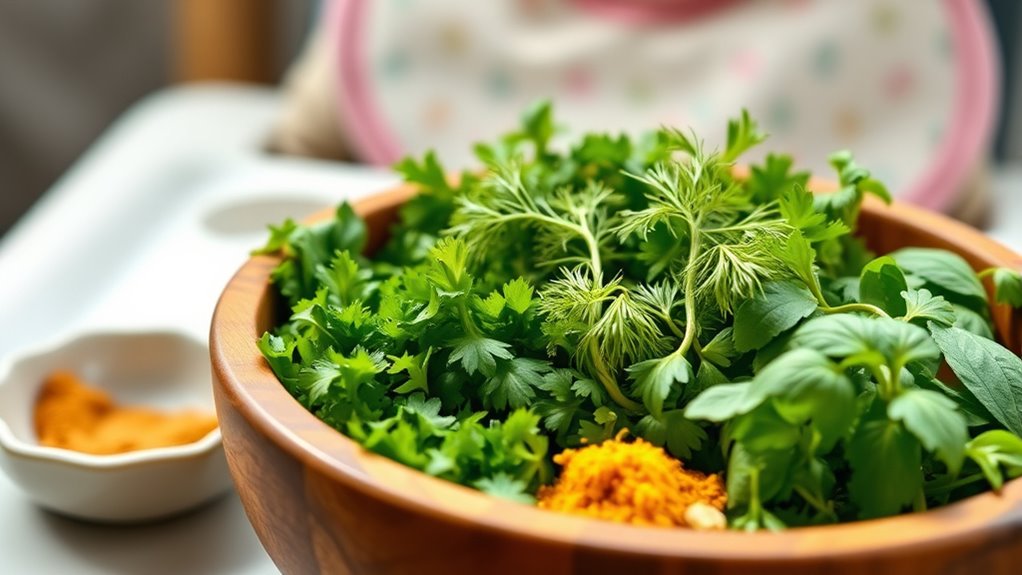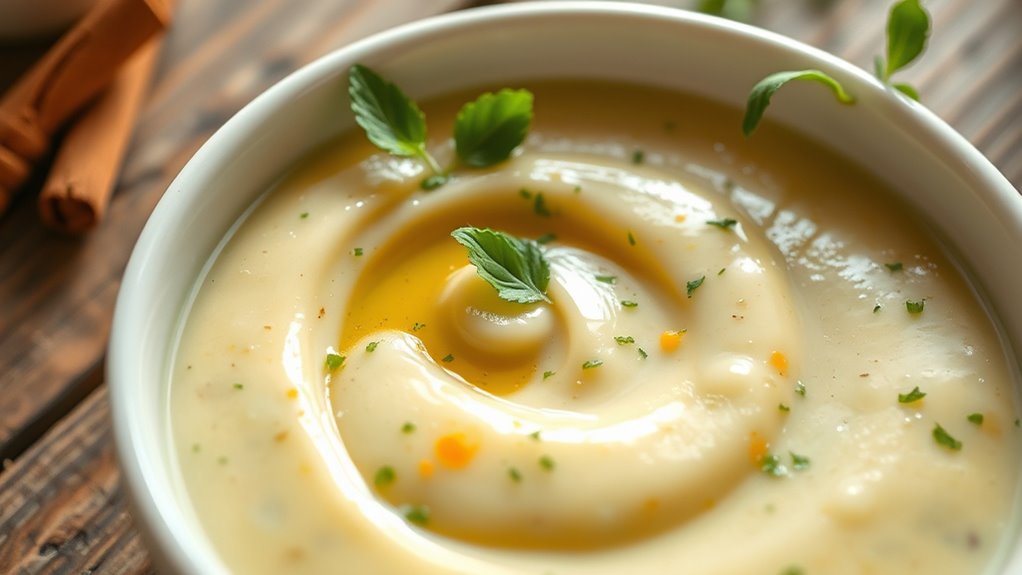To spice up your baby’s meals safely, start with mild herbs like basil, parsley, or dill, and add tiny amounts of cinnamon or turmeric to fruit purees or oatmeal. Use fresh herbs for aroma and flavor, and introduce one spice at a time to watch for reactions. Avoid salt and overly spicy ingredients, ensuring all additions are natural and gentle. If you keep exploring, you’ll discover how to balance taste and nutrition effortlessly in every meal.
Key Takeaways
- Introduce one mild herb or spice at a time to monitor baby’s reactions and prevent overwhelming their palate.
- Use small quantities of herbs like basil, parsley, or oregano to enhance flavor without overpowering.
- Incorporate spices such as cinnamon or nutmeg sparingly into fruit purees or oatmeal for subtle taste enhancement.
- Prefer fresh herbs and natural, mild spices to ensure safety and avoid excessive seasoning in baby food.
- Observe your baby closely for any adverse reactions after introducing new herbs or spices before trying additional ones.

Introducing spices into your baby’s diet can be a great way to develop their palate and expose them to new flavors. Starting with mild herbs and spices not only adds excitement to their meals but also offers valuable nutritional benefits. Many herbs and spices contain antioxidants, vitamins, and minerals that support your baby’s overall health. For example, cinnamon provides anti-inflammatory properties, while turmeric offers potential immune-boosting effects. Including these in small, appropriate amounts can enhance the nutritional profile of your baby’s food without overwhelming their delicate taste buds.
When you introduce spices, you’re also helping your little one develop a more sophisticated palate. Early exposure to a variety of flavors encourages acceptance of different tastes and textures later in life. Mild herbs like basil, oregano, or parsley can be added to purees or mashed vegetables, providing subtle flavor enhancements that pique your baby’s curiosity. Spices such as cinnamon or nutmeg can be sprinkled sparingly into fruit purees or oatmeal, creating gentle flavor profiles that foster flavor development. The key is to start slow and observe your baby’s reactions, ensuring the spices are well tolerated and appreciated.
It’s important to remember that babies have sensitive digestive systems, so you should use spices sparingly. Always introduce new herbs or spices one at a time, giving your baby time to adjust and watch for any adverse reactions. Avoid using salt, sugar, or overly spicy ingredients, as these can be harmful at this stage. Instead, focus on natural, mild spices that complement the food’s original flavor. You can also experiment with fresh herbs—such as a tiny bit of chopped cilantro or dill—to add freshness and aroma without overwhelming your baby’s taste buds.
Conclusion
By adding just a pinch of mild herbs and spices to your baby’s food, you’re transforming every meal into a flavor explosion that will blow their tiny taste buds away! Imagine creating a world where your little one’s palate is no longer boring but bursting with excitement and adventure. Don’t hold back—spice up their life from the very first bite and watch as they develop a love for vibrant, unforgettable flavors that will last a lifetime!










